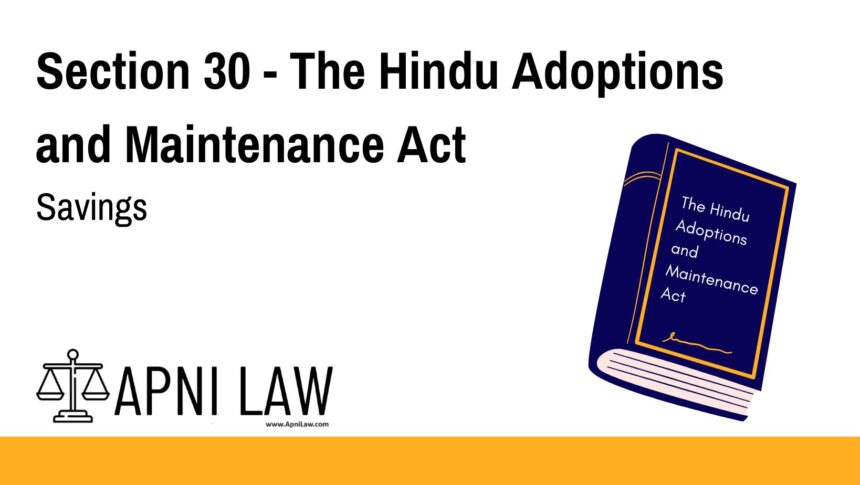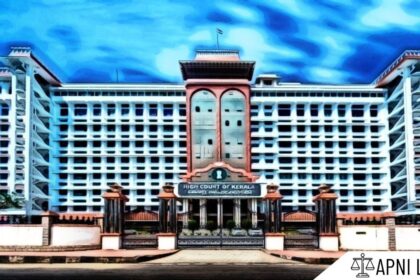Code: Section 30 of The Hindu Adoptions and Maintenance Act, 1956
“Nothing contained in this Act shall affect any adoption made before the commencement of this Act, and the validity and effect of any such adoption shall be determined as if this Act had not been passed.”
Explanation of Section 30
Section 30 of the Hindu Adoptions and Maintenance Act, 1956, is a savings clause that ensures that the provisions of the Act do not interfere with adoptions that were made before the commencement of the Act. This means that any adoption conducted under the law before the Act came into effect will continue to be valid and recognized as if the new Act had never been passed.
Key Points:
- Pre-Act Adoptions: Adoptions made before the commencement of the Hindu Adoptions and Maintenance Act, 1956, remain unaffected by this Act.
- Validity of Pre-Act Adoptions: The validity and legal effect of such adoptions will be determined by the laws that were in place at the time the adoption occurred, not by the provisions of this Act.
- Intent: This clause ensures that adoptions made under previous legal provisions remain intact, protecting individuals whose adoptions were based on prior laws.
Illustration
Example:
An adoption took place in 1950, long before the Hindu Adoptions and Maintenance Act, 1956, was passed. Even after the Act’s enactment, the adoption will still be considered valid and will not be governed by the new law. The adoption’s validity and effect will be determined based on the laws in place at the time of the adoption.
Common Questions and Answers on Section 30
- Does Section 30 affect adoptions made before 1956?
No. Section 30 specifically states that adoptions made before the commencement of this Act will remain valid under the laws that existed at that time. - What happens if an adoption made before the Act conflicts with the provisions of the Hindu Adoptions and Maintenance Act?
The adoption will still be valid as if the new Act had not been passed, meaning that the provisions of the Act do not apply to these older adoptions. - Can adoptions made before 1956 be challenged under the new Act?
No, as per Section 30, the new Act does not affect adoptions made before its commencement. The old laws governing those adoptions continue to apply. - Why is a savings clause important in a new law?
It ensures that prior legal actions, rights, and statuses are not undone by the enactment of a new law, providing clarity and stability in legal matters.
Conclusion
Section 30 of the Hindu Adoptions and Maintenance Act, 1956, provides clarity regarding the status of adoptions made before the Act came into force. It ensures that these adoptions remain valid under the laws that were in effect at the time, preserving the legal rights of individuals involved in adoptions prior to 1956.
For more insights on Hindu family law and adoption matters, visit ApniLaw.







